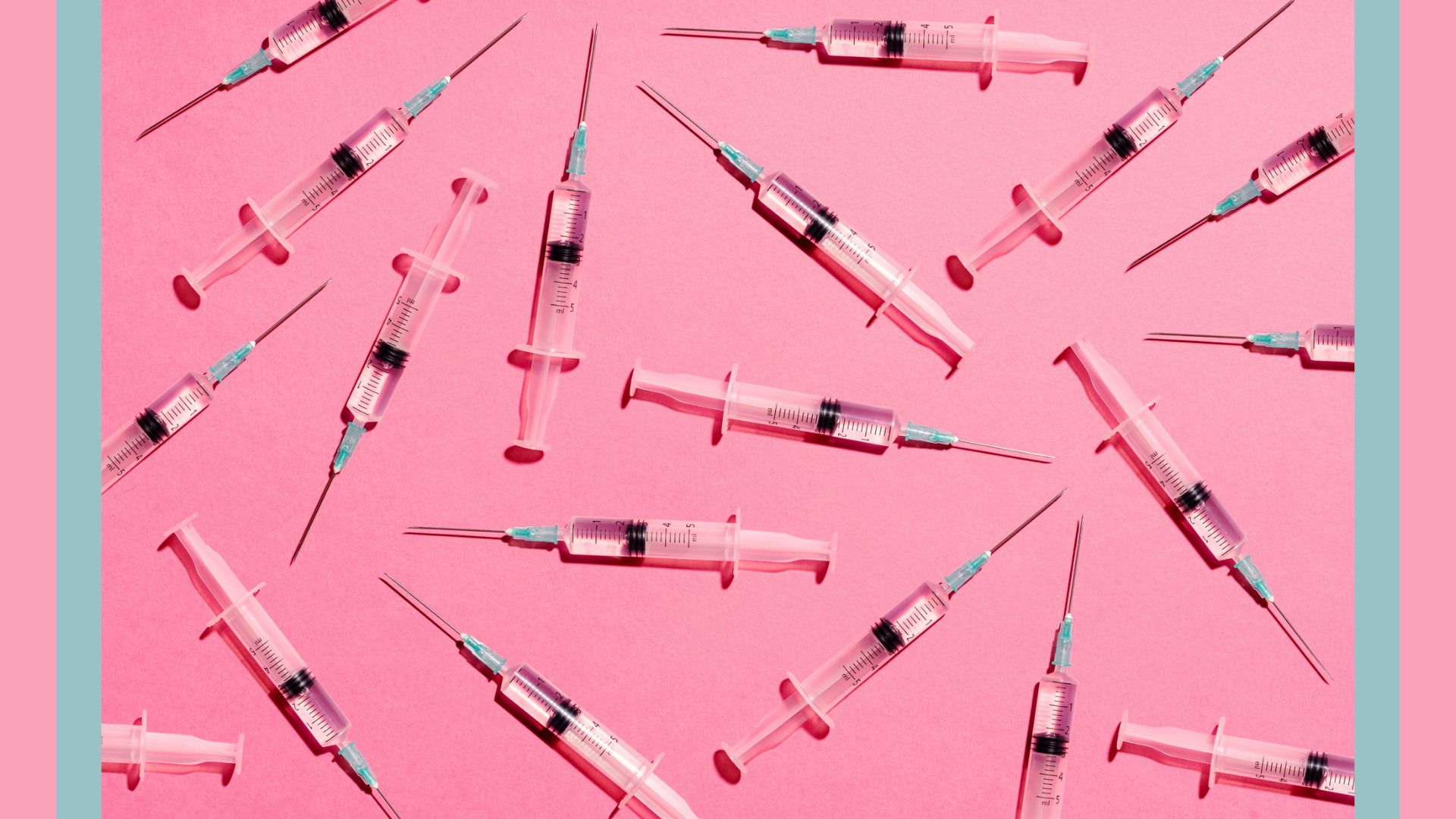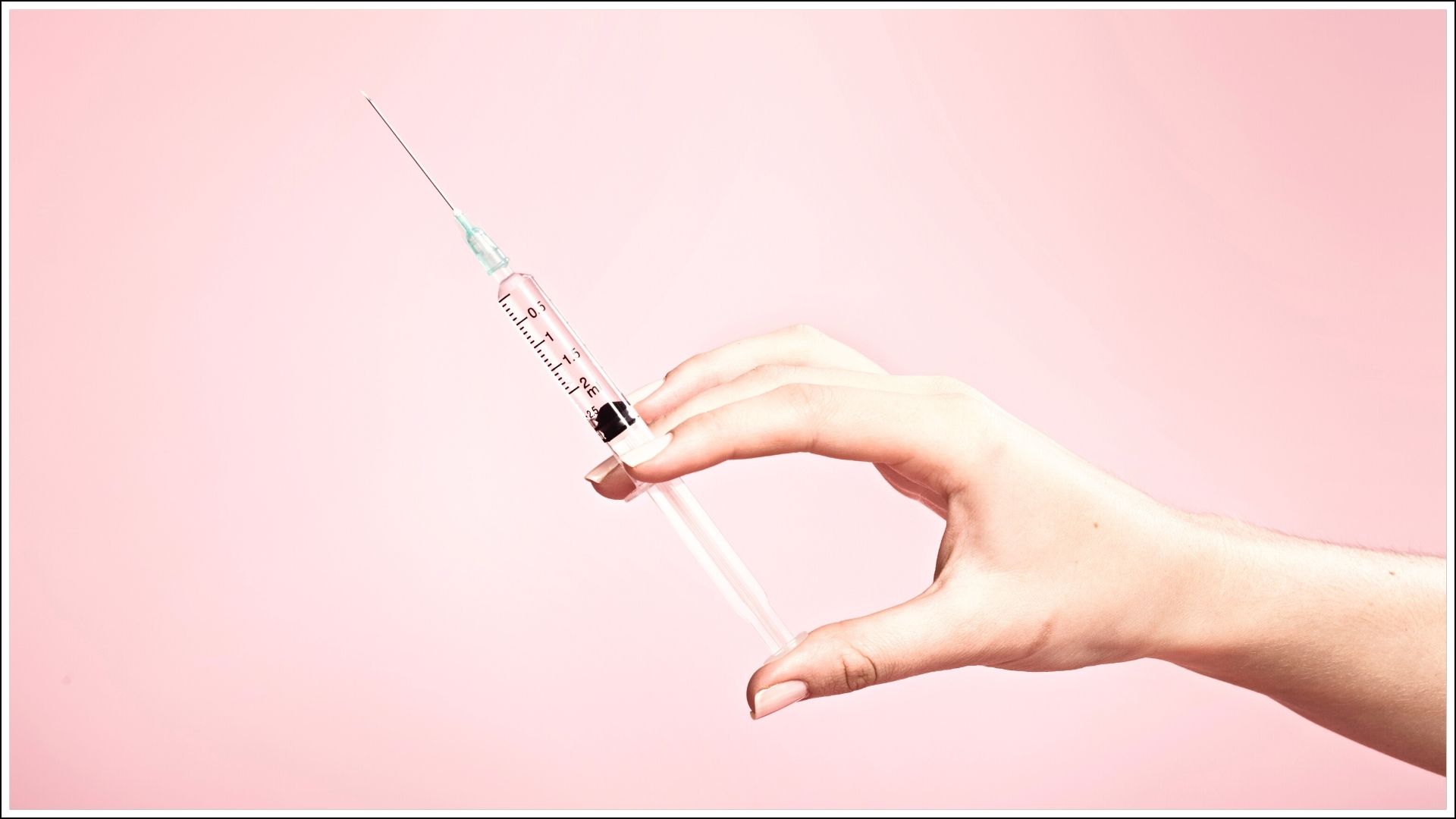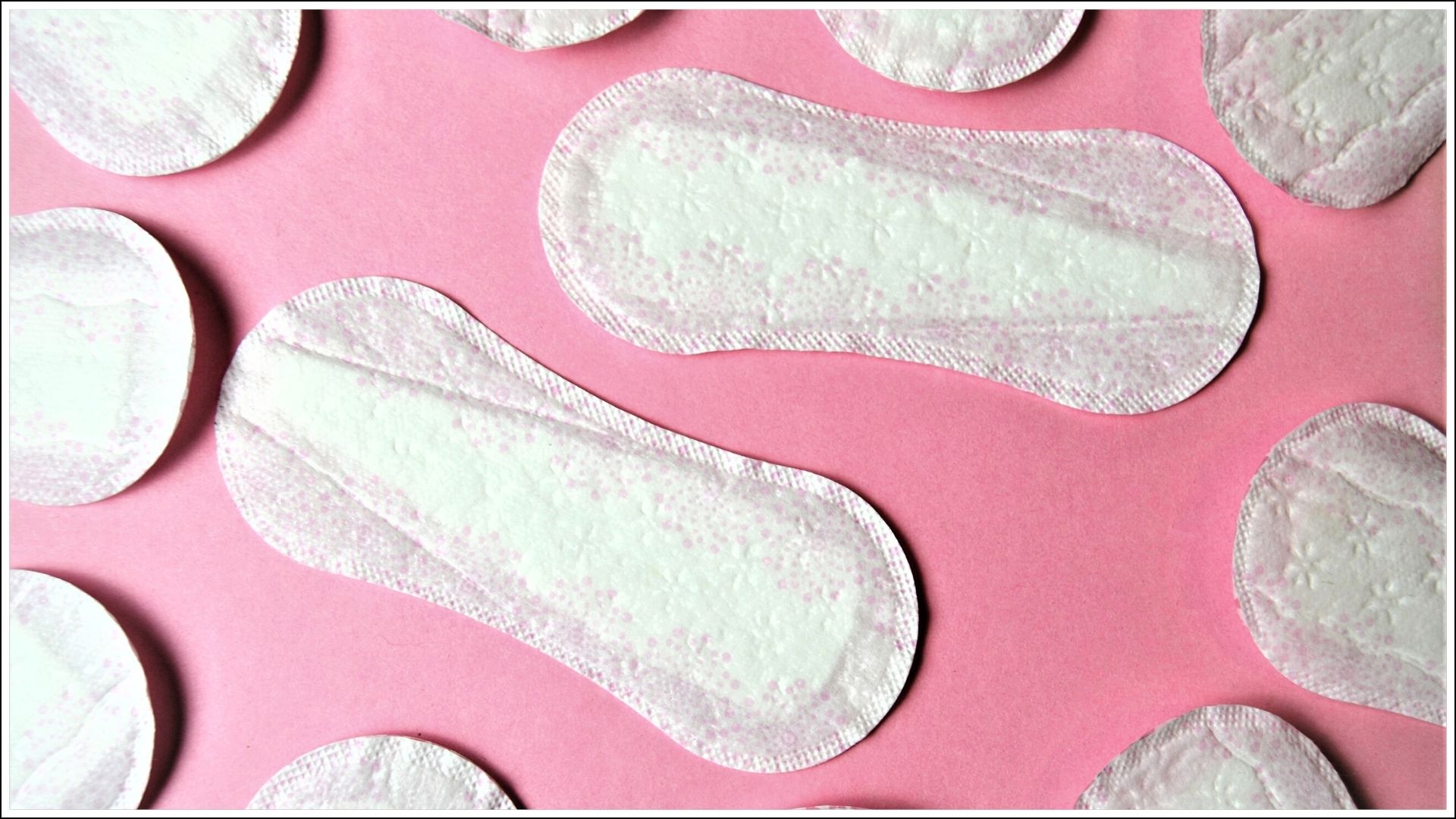Can the COVID vaccine delay your period? What to know post-jab
Experts address menstrual concerns swirling social media: can the COVID vaccine delay your period? And how do boosters affect things?


It's been a concern for a while now: can the COVID vaccine delay your period?
Immunization shots have brought peace of mind to many, but others have expressed concerns about their overall effect on the body, especially when it comes to monthly cycles.
And now with the addition of boosters, there are even more questions to be answered. Can you take aspirin after the COVID vaccine? Can COVID cause hair loss? Can the COVID vaccine give you more sex appeal? Do masks protect against the Delta variant? And, yes, does immunization have any effects on your menstruation?
A study published in January 2021 in the journal of Reproductive BioMedicine Online found that 28% of patients with confirmed coronavirus cases experienced changes to their menstrual cycle, 19% with prolonged periods and 25% with changes in the volume of their flows.
According to research from the Medicines and Healthcare products Regulatory Agency in the United Kingdom, over 27,000 women in the UK reported changes in their menstrual cycle after a vaccine. This information was recorded between December 9, 2020, to September 8, 2021, and providers gave 47.8 million vaccine doses to women during this time.
So how exactly does the COVID vaccine affect your cycle and, most importantly, will it go back to normal post-jab?
Can the COVID vaccine delay your period?
Simply, yes. While most of us can expect a sore arm and fatigue after getting the jab, there have been connections between the COVID-19 vaccine and people's menstrual cycles.
Dr. Kathryn Clancy, Period Podcast host and a professor studying the menstrual cycle at the University of Illinois, posted on Twitter about the changes in her own period, saying it not only arrived early but was significantly heavier than normal after receiving her first dose of the Moderna vaccine. Discussion with a colleague who experienced similar effects led Clancy to crowd-source on social media.
A colleague told me she has heard from others that their periods were heavy post-vax. I'm curious whether other menstruators have noticed changes too? I'm a week and a half out from dose 1 of Moderna, got my period maybe a day or so early, and am gushing like I'm in my 20s again.February 24, 2021
Does this have to do with the way the vax response is mounting a broader inflammatory response, possibly moreso because of the lipid nanoparticle or mRNA mechanism? Either way I am fascinated! Inflammation + tissue remodeling = extra bleedypants!February 24, 2021
A flurry of replies came rolling in: women with both accelerated and delayed cycles, others with heavier flows and exacerbated menstrual cramps. Some even reported hot flashes and various hormonal responses. This mountain of anecdotal evidence, though scientifically inconclusive, could not be ignored.
With little research to link vaccination with changes in menstruation, Dr. Clancy—along with Dr. Katharine Lee, a research fellow in the Division of Public Health Sciences at Washington University—decided to bridge the gap. Together they developed a formal study to collect and analyze data surrounding this menstrual phenomenon after inoculation.
“It really sucks to be surprised by your period,” Dr. Lee told The Verge. “It’s nice to know that it could happen, in the same way that it is knowing you might have a fever and headache.”
However, the news doesn't need to be too worrisome: in September 2021, the Royal College of Obstetricians and Gynecologists said that any period changes from the vaccine are likely to revert back to normal after either one or two cycles. Professionals insist that despite irregularities, women—including those who are trying to become pregnant—still get the vaccine.

How does the COVID vaccine affect your period?
Stress is a known cause of irregular periods. Vaccines can put stress on the immune system, which in turn can trigger slight changes to your cycle. The endometrium (the lining of the uterus) is part of the immune system and helps to protect newly implanted embryos from pathogens. “It’s not inconceivable that there could be a connection,” Jen Gunter, an obstetrician-gynecologist and women’s health advocate, told Mother Jones.
Gunter also outlines two more major factors that could be at play: the COVID vaccine could impact the chemical messaging from the brain to the ovaries and/or from the ovaries to the uterus. “These effects could be from the vaccine itself, the immune system response to the vaccine or potentially related to fever or feeling unwell from the vaccine or stress related to vaccination,” she noted.
After getting a shot, your body is assigned a pretty big task: to produce antibodies and build a protective wall against possible future COVID infection. “Vaccines make the immune system work harder, which will have an effect on menstruation,” says Dr. Sandra El Hajj, a global health policy expert and member of the American Preventative Health Organization.
However, menstrual cycles are impacted by a multitude of elements. “Every month can have its own affecting factors,” the doctor said. “Each woman witnesses changes continuously at a personal, lifestyle and dietary level. All these can have a big impact on the woman's hormones, which in turn will affect menstruation.”
An April 22 study published in Science Advances shared the results of a survey about menstrual bleeding following COVID-19 vaccination. Of the 16,000 menstruating participants, 42% reported bleeding more than they usually do during their period.
Dr. Sandra El Hajj said: “Vaccines are made of very small nanoparticles that may cause changes in the bleeding patterns, a temporary platelet-killing effect. These platelets are normally involved in blood clotting and can regenerate very fast, but if someone gets a shot right before a period, it may lead to heavier bleeding.”
How do COVID booster shots affect your period?
Although there hasn't been a direct link to how booster shots in particular affect menstrual cycles, the CDC reported that the side effects were similar to the two-shot or single-dose primary series of vaccines.
Most people have experienced mild side effects such as fever, headache, fatigue and pain at the injection site, per the findings. Should you have concerns about your period after receiving the booster shot, do contact a medical professional.

Does the COVID vaccine affect future pregnancy?
In terms of fertility and pregnancy, “there are no known safety concerns with the vaccine,” according to Dr. Sigal Klipstein, a reproductive endocrinologist and member of the American Society for Reproductive Medicine COVID-19 Task Force.
However, according to the American Society for Reproductive Medicine, fertility patients should avoid getting the vaccine three days before and three days after any fertility procedures like egg retrieval and embryo transfer. The precaution is to avoid confusion with any post-procedure side effects.
According to the CDC, there is no evidence currently that antibodies made following COVID-19 vaccination or that vaccine ingredients would cause pregnancy issues now or in the future. Scientists are still studying the effects and are reporting the findings as they become available.
Can you have an abnormal mammogram after COVID vaccine?
The COVID vaccine has also been found to enlarge lymph nodes. While this is a normal immune system reaction, it can light up a routine mammogram and cause concern for radiologists looking to flag signs of cancer. This typically occurs on the same side you received the shot, and typically only lasts for a few weeks, Dr. Geeta Swamy—a maternal-fetal medicine specialist and a member of the American College of Obstetricians and Gynecologists' COVID vaccine group—told The New York Times.
To avoid confusion and alarm, the Society of Breast Imaging recommends scheduling mammograms before your first dose or at least one month after your second.
If you’re wondering, "Can the COVID vaccine delay your period?" or if you've experienced abrupt changes to your menstrual cycle, contact your doctor. You can also use period tracker apps to monitor symptoms, flow and ovulation.
Rheanna is a multimedia journalist whose culinary, travel, and wellness work has appeared in Esquire, Cosmopolitan, Us Weekly, Eating Well, Brides, and more. She was previously the resident bar critic and features writer at Time Out New York, and the news and video editor for Delish. She has also helped produce documentaries. Outside the office, you can find her shooting 35mm film and adventuring with her rescue mutt, Brody.